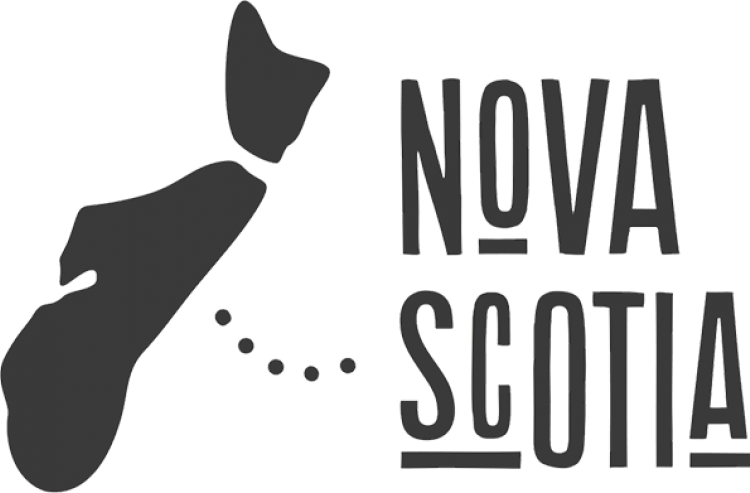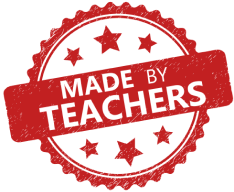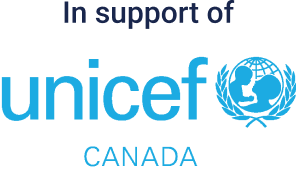Nova Scotia Grade 5

CLICK HERE FOR CURRICULUM CONNECTIONS, LESSONS AND SUPPORT RESOURCES.
Made by a Grade 5 teacher in Nova Scotia.
Kids Boost Immunity (KBI) provides educational content (lessons and support materials) developed by teachers and where needed, health experts, that is directly linked to curriculum and is available completely for free. Each lesson is paired with an online quiz that students can take on a laptop, tablet, or phone. Every time a student scores 80% or higher on a quiz, we donate life-saving vaccines to UNICEF Canada. To learn more about KBI, click here.
Click on the overarching curriculum themes below to see the curriculum outcomes that match KBI educational content. The full Grade 5 Nova Scotia Curriculum Connections document is here.
- English Language Arts 5
-
Curricular outcomes:
Reading and Viewing
- ELA - GCO 4
- Students will be expected to select, read, and view with understanding a range of literature, information, media, and visual text.
- 4.1 Use cueing systems to construe meaning
- 4.4 Explain how text structures convey meaning
- Students will be expected to select, read, and view with understanding a range of literature, information, media, and visual text.
Writing and Representing
- ELO - GCO 8
- Students will be expected to use writing and representation to explore, clarify, and reflect on their thoughts, feelings, experiences, and learnings; and to use their imaginations.
- 8.2 create texts that represent experiences, personality, and interests
- Sort sensory details (5-E.1)
- Put the sentences in order (5-O.1)
- 8.2 create texts that represent experiences, personality, and interests
- Students will be expected to use writing and representation to explore, clarify, and reflect on their thoughts, feelings, experiences, and learnings; and to use their imaginations.
- ELO - GCO 10
- Students will be expected to use a range of strategies to develop effective writing and representing and to enhance their clarity, precision, and effectiveness.
- 10.1 create texts using the processes of writing and representing.
- 10.1 create texts using the processes of writing and representing.
- Students will be expected to use a range of strategies to develop effective writing and representing and to enhance their clarity, precision, and effectiveness.
All KBI lessons are applicable.
Most lessons have interactive educational games to support comprehension.
Lessons have a link to unit/lesson plans on each lesson title. These include adaptable literacy building activities such as vocabulary worksheets with phonetic structures, spelling exercises, matching definitions to vocabulary terms, sentence writing using vocabulary terms, and prefix/suffix exercises.
- ELA - GCO 4
- Critical Thinking
-
Curricular outcomes:
Science- Attitude: Scientific Discovery
- 416 appreciate the importance of accuracy and honesty
- 417 demonstrate perseverance and a desire to understand Evident when students, for example:
- listen to, recognize, and consider differing opinions
- seek additional information before making a decision
- base conclusions on evidence rather than preconceived ideas or hunches
- report and record what is observed, not what they think ought to be or what they believe the teacher expects
- willingly consider changing actions and opinions when presented with new information or evidence
- record accurately what has been seen or measured when collecting evidence
ELA
- SCO 7.3 -respond critically to text
- Identify instances of opinion, prejudice, bias and stereotyping in text
- GCO 7: Students will be expected to respond critically to a range of texts, applying their knowledge of language, form and genre.
Health- Sexual & Reproductive Health
- Reliable Sexual Health Information
- How would I know reliable information from unreliable information online about reproduction or puberty?
- What makes information reliable or unreliable?
- Why would there be unreliable information online?
- How do I find culturally relevant sexual health information online?
Applicable KBI lessons:
1. Critical Thinking & Evaluating Information
- Literacy builder worksheet/answer guide
- Lesson worksheet/answers
- Video worksheet/answers
- Inquiry activities/answer guides
- Numeracy activity/answers
- Our Roots
-
Curricular outcomes:
ELA
- Word Awareness- inclusive language
- GCO 3 – Students will be able to interact with sensitivity and respect, considering the situation, audience and purpose.
Social Studies
- Learners will investigate how we learn about the past, with a focus on Acadians, African Nova Scotians, Gaels, Mi’kmaq, and additional cultures.
- 5.1.1 Develop an understanding of how we learn about the past
- Learners will investigate how environment influenced the development of an ancient society.
- 5.2.1 Explain how environment influenced the development of an ancient society
- Learners will investigate the diverse societies of First Nations and Inuit, in what later became Canada.
- 5.4.1 Demonstrate an understanding of the diverse societies of First Nations and Inuit, in what later became Canada
- Learners will investigate decision-making practices in First Nations and Inuit societies in what later became Atlantic Canada.
- 5.4.2 Examine decision-making practices in First Nations and Inuit societies in what later became Atlantic Canada
- Learners will analyse interactions between British and French and First Nations and Inuit in what later became Atlantic Canada.
- 5.5.1 Examine interactions between British and French and First Nations and Inuit in what later became Atlantic Canada
Applicable KBI lessons:
1. Life on Turtle Island
- Literacy builder worksheet/answer guide
- Lesson worksheet/answers
2. Cooperation and Colonization
- Literacy builder worksheet/answer guide
- Lesson worksheet/answers
- SCIENCE 5 & HEALTH 5
-
Curricular outcomes:
SCIENCE 5
- Outcome: Learners will analyse how the body functions to meet its needs.
- Organs and systems function together to help humans and other animals meet their basic needs. Learners will explore the major internal organs through the use of models and simulations. Many factors can affect a healthy body and an analysis of how the body functions to meet its needs will allow learners to explore the role they play in maintaining a healthy body.
- Outcome: Describe the major functions and structures of the respiratory, digestive, excretory, and circulatory systems. 302-5
- Elaborations - Strategies for Learning and Teaching
- Students should investigate the role of the digestive system in providing nourishment for the body functions. Major organs include teeth, the tongue, oesophagus, stomach, small intestine and large intestine.
- Students should investigate the structure and function of the circulatory system. Major organs include the heart and blood vessels (arteries, veins, capillaries and blood).
- Students should investigate the structure and function of the respiratory system. Major organs include the nose, trachea, lungs and diaphragm.
HEALTH 5
- Outcome: Health Learners will investigate how health behaviours enhance physical, mental, emotional, social, and spiritual health
- Investigate healthy behaviours that can impact transmission of communicable diseases (CZ, COM, CT, PCD)
Applicable KBI lessons:
1. The Human Body - Circulatory System
- Literacy builder worksheets/answer guides
- Lesson worksheets/answers
- Inquiry activities/answer guides
2. The Human Body - Respiratory System
- Literacy builder worksheet/answer guide
- Lesson worksheet/answers
- Inquiry activities/answer guides
- Numeracy activity/answers
3. The Human Body - Digestive System
- Literacy builder worksheet/answer guide
- Lesson worksheet/answers
- Inquiry activities/answer guides
- Numeracy activity/answers
- Outcome: Learners will analyse how the body functions to meet its needs.
- Working Together
-
Curricular outcomes:
Science: Life Science- Healthy Body
- Learners will analyse how the body functions to meet its needs.
- Describe the body’s defenses against infections and describe the role of the skin (302-7, 302-8)
- Describe examples of medical techniques and technologies that have contributed to the knowledge of our body organisms, systems, and health issues (106-2, 106-4, 107-12, 107-14)
Health- Health Behaviours
- Impacts on Communicable Disease Transmission
- Why is it important to know the difference between viral and bacterial infections?
- What are ways to help prevent the transmission of communicable diseases?
- How can people take care of themselves, friends, or their family when experiencing impacts of communicable disease?
Applicable KBI lessons:
1. Germs, The Body's Defense System, & How Vaccines Help
- Lesson worksheet/answers
- Inquiry activities
- Learners will analyse how the body functions to meet its needs.
Curriculum-Related Themes Throughout the Year
- Reflecting on hardships and courage during WWII (November)
-
Applicable KBI lessons:
1. Remembrance Day / Veterans Day / Armistice Day
- Reflecting on leadership qualities that foster kindness (December)
-
Applicable KBI lessons:
1. Winter Break - Spreading Kindness
- Literacy builder worksheet/answer guide
- Activity - Making A Difference
- Activity - Compare and Contrast special things at this time of year
- Activity - Recipe book
- Activity - Shape Poem
- Highlighting some key inspirational leaders during Black History Month as well as some experiences of refugees from different parts of the world (February)
-
Applicable KBI lessons:
1. Black History Month
2. Refugee Experiences
- Lesson worksheet/answers
- Inquiry activities
- Celebrating Inspiring Women in STEM (March)
-
Applicable KBI lessons:
1. International Women's Day - Celebrating Inspiring Women in STEM
- Literacy builder worksheets/answer guides
- Inquiry activities
- Caring for the environment (April)
-
Applicable KBI lessons:
1. Environment and Climate Change
- Literacy builder worksheets/ answer guides
- Lesson Worksheets/answers
- Inquiry activities
- Understanding communicable diseases and how they are spread, and learning about immunization. Suggested during flu season, immunization awareness week, and school vaccinations (if applicable)
-
Applicable KBI lessons:
1. Immunization Awareness Week
2. The Spread of Infectious Diseases
3. Scientific Curiosity and Vaccine Discoveries




